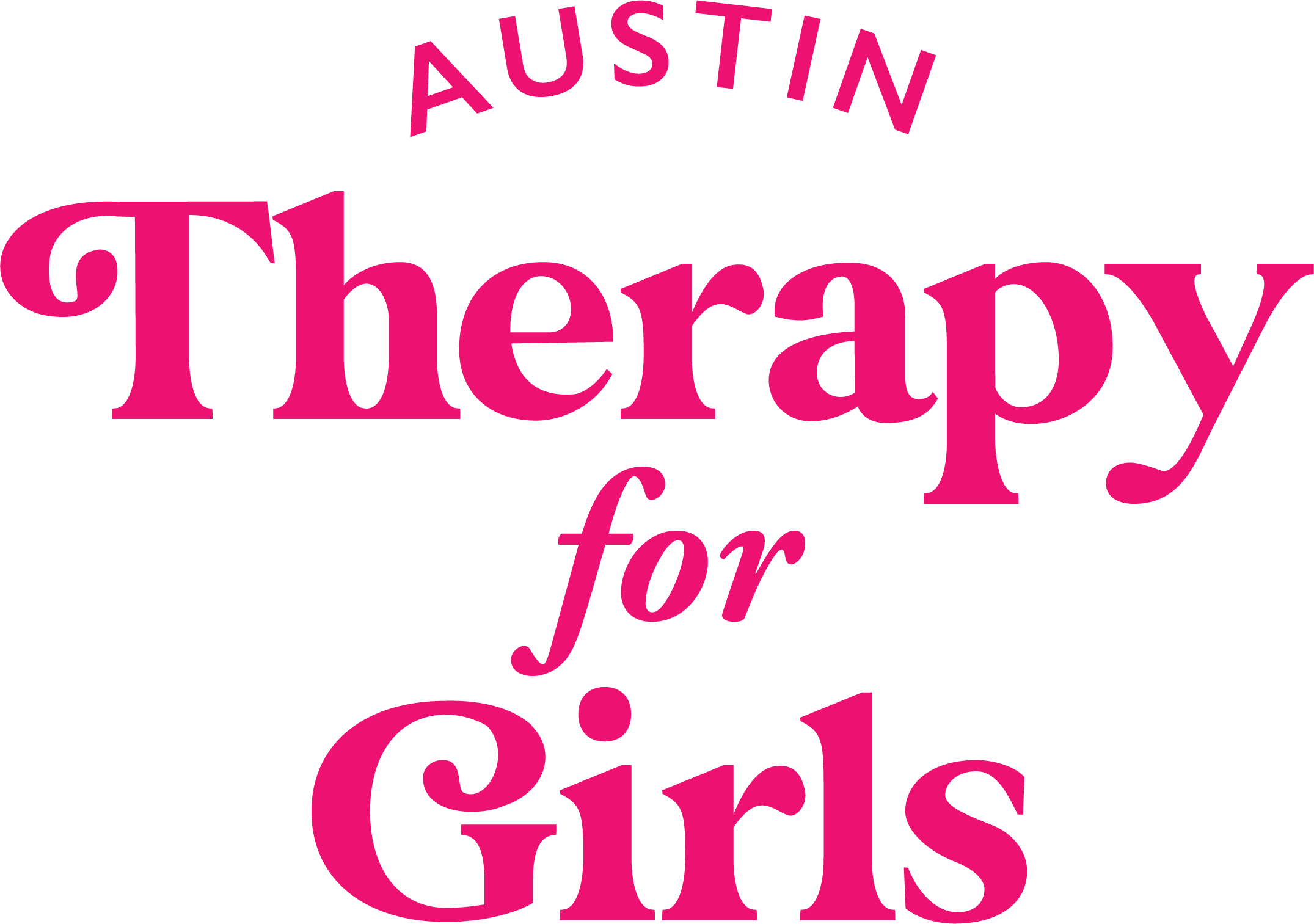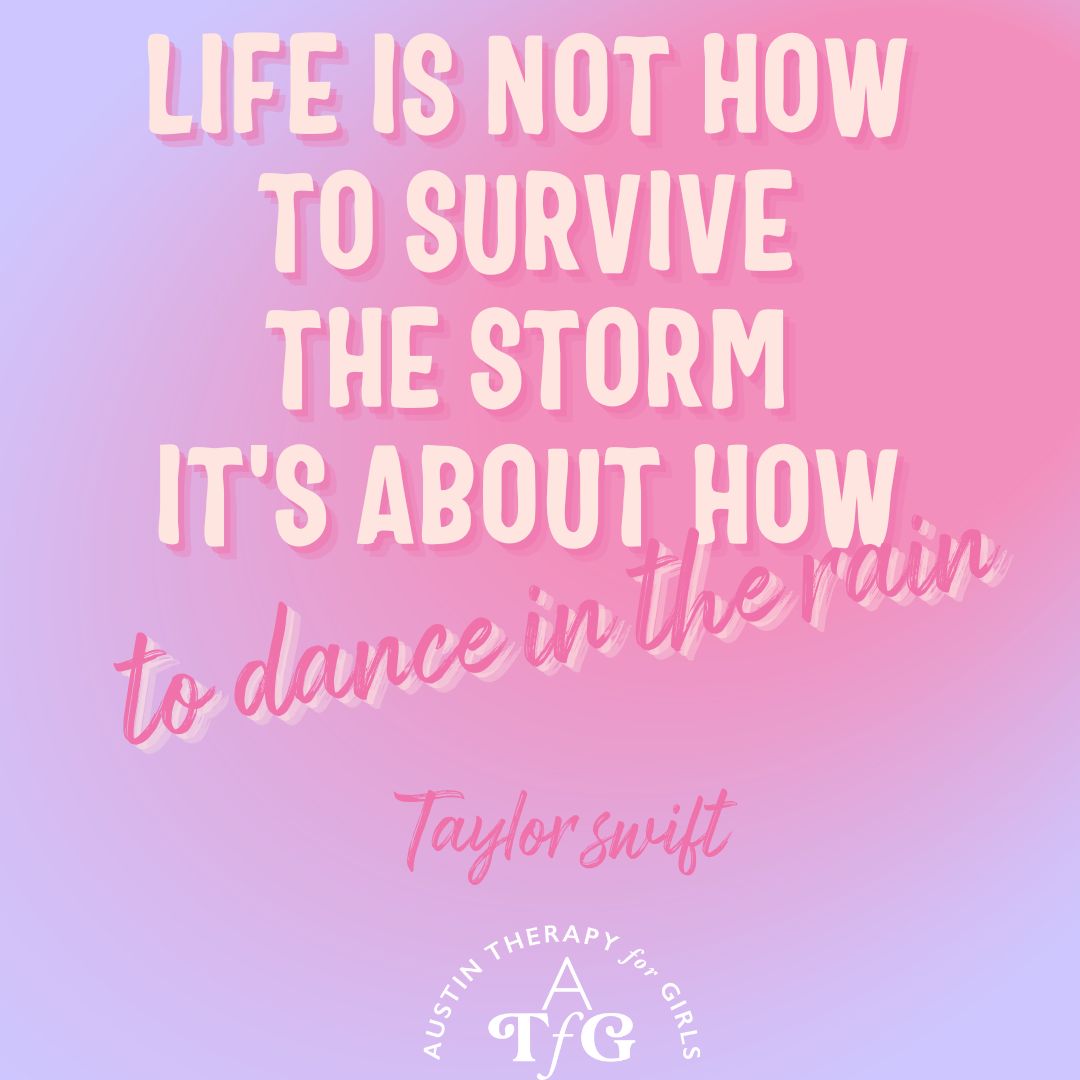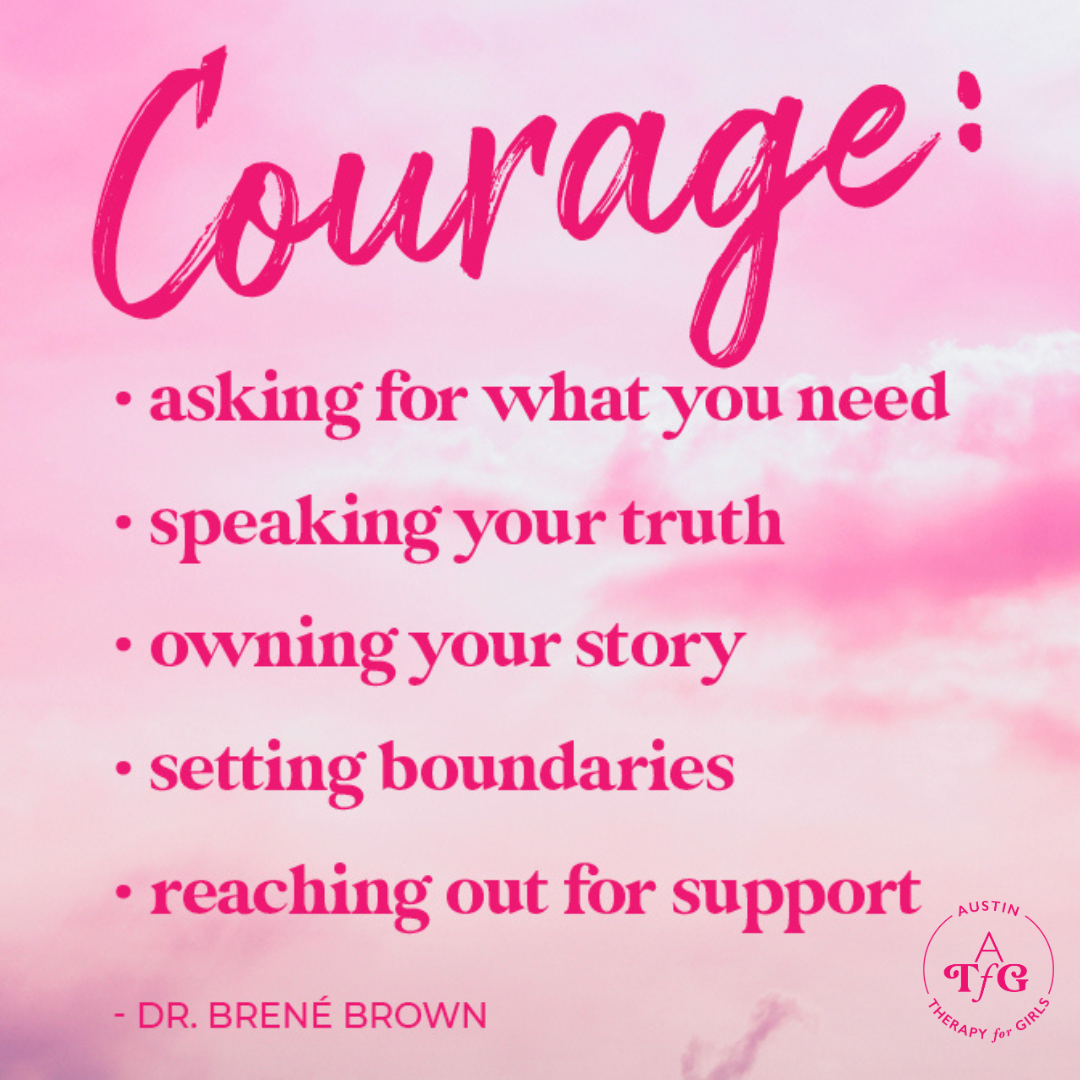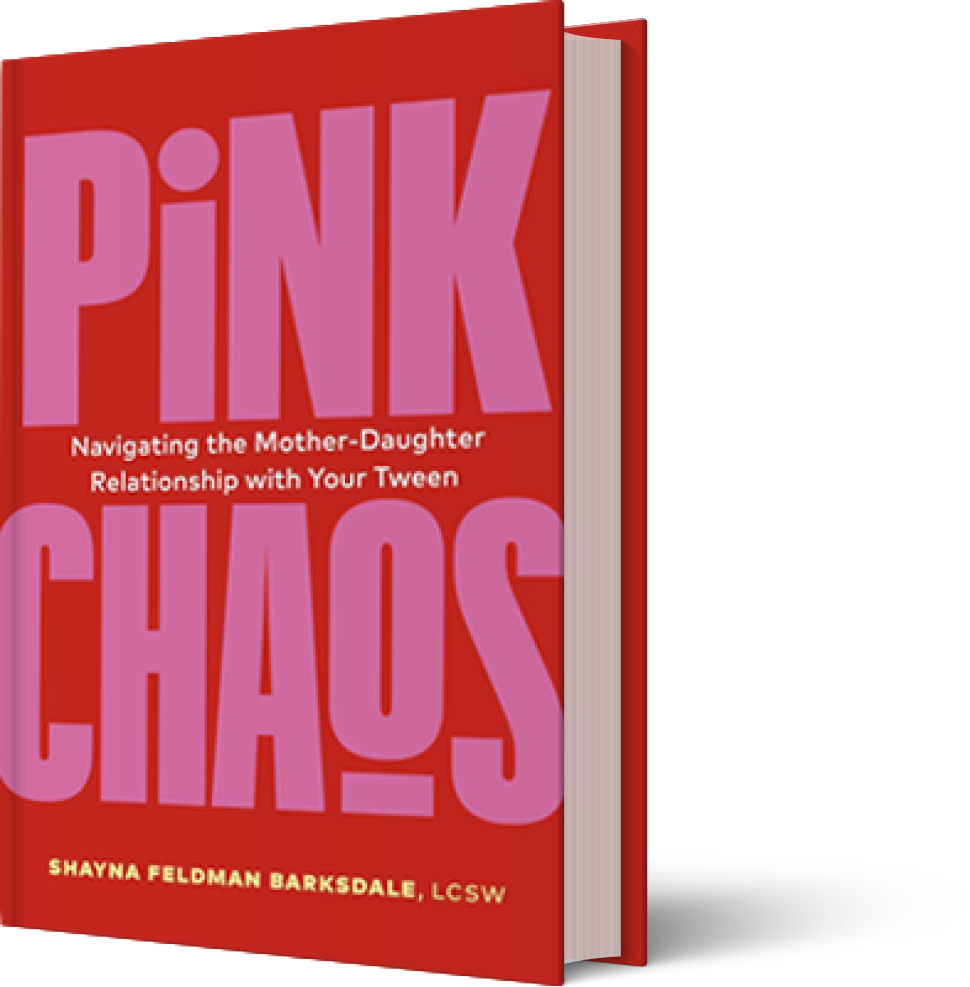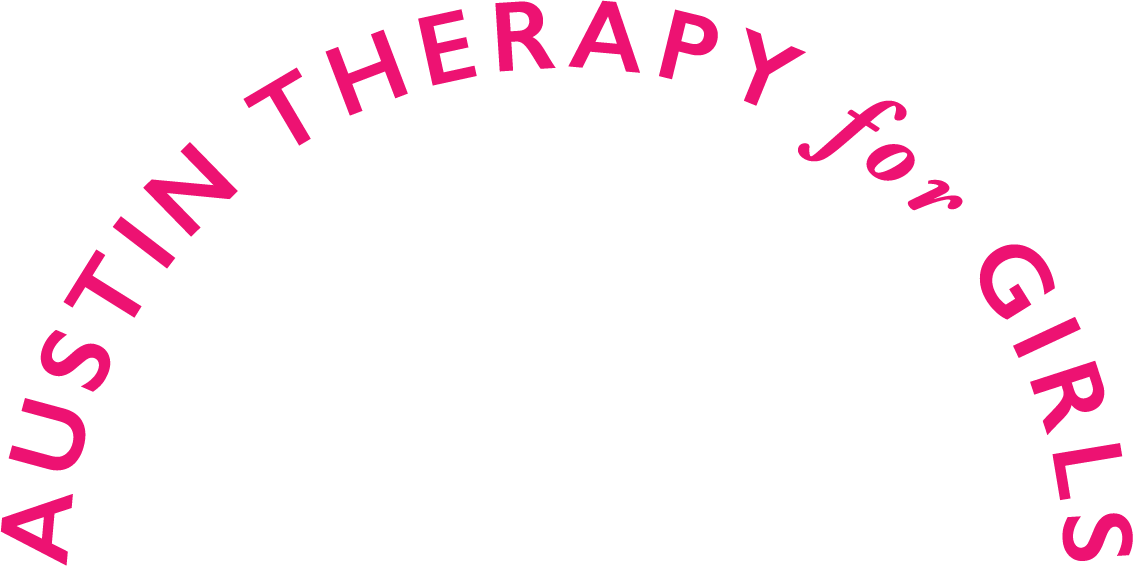Depression in Tween and Teen Girls: What You Need to Know
As many of us head back to school here in Texas, we’ve heard of some triumphs on the first day of school, and of course, the always-present concern of not getting lost (which is especially big for anxious teens). Unfortunately, we’ve also had some devastating news around two teen girl deaths this first week of school here in Austin, Texas.
When I started Austin Therapy for Girls in 2012, I knew it was important to provide a specific service to girls ages 5-25 and the people who love and support them. Of course, 11 years later, I had no idea the mental health crisis we would be facing in 2023.
As I write this blog, feeling a little down myself around the sadness that those families are feeling and the devastation they are experiencing around their daughters’ deaths, I have a love-hate relationship with this blog. Sometimes it’s really challenging to sit down and write, and other times it just seems to flow. Today it’s flow time because I feel so passionate about giving caregivers the knowledge to recognize a mental health struggle and give the tools to know when to ask for help.
Today, I want to talk about the reality of the depression that girls are feeling at a younger and younger age. I also know that all of the therapists will most likely be full this year by September. (reminder: book your fall therapy appointments now) I want to give parents the tools they need to recognize when their daughter is feeling depressed.
Depression is a word we hear thrown around on tiktok and instagram a lot. And even the new Barbie movie has a commercial for Depression Barbie that feels very relatable
“She wears sweatpants all day and night,” chirps the child’s voiceover. “She spent seven hours today on Instagram looking at her estranged best friend’s engagement photos while eating a family sized pack of Starburst and now her jaw is killing her! And now she’s going to watch the BBC’s Pride and Prejudice for the seventh time, until she falls asleep! Anxiety, panic attacks and OCD are sold separately.”
Just like the end of the commercial refers to : I always say to my clients depression and anxiety are like BFF, they like to hang out and watch CSI together and you never know who’s gonna show up to the binge watching party for one.
Depression is a mental health condition that causes a persistent feeling of sadness and loss of interest in activities once enjoyed. It can affect how you feel, think, and behave. Depression can lead to a variety of emotional and physical problems and can decrease your ability to function not only at school or work but also in your close relationships.
We relate depression to having really dark sunglasses on, meaning the filter of what comes into your mind is negative and what comes out is negative.
When to seek professional help for anxiety and depression?
We know all the traditional signs of depression such as:
- Sadness or irritability ( remember anger is a big sign for girls under 13)
- Loss of interest in activities once enjoyed
- Changes in appetite (eating more or less)
- Changes in sleep patterns (sleeping more or less)
- Loss of energy
- Difficulty concentrating
- Thoughts of death or suicide
However here are some signs to look for that might be early stages of a mental health struggle.
Early stages include: Feelings of loneliness and hopelessness; statements like “I have no friends, everyone hates me, my teachers don’t like me, ect. Blaming parents/caregivers with statements such as: “ you always make me do too many chores or you never notice what I’m doing”right “.
Having what seems to be a minor set back, however, in your daughter’s mind she is unable to get out of that mindset for several days.
Rolling eyes and slamming doors are sometimes a normal part of transitions especially for teenage girls. However isolation, staying in a dark room for hours on end can be the beginning stages of what can turn into a depressive episode. This is when you might want to seek professional help. If your daughter asks to see a therapist, please respond quickly.
How to have a conversation with your daughter about how she feels?
-
Start with daily check-in:
The first thing we always suggest for parents is to have a daily check-in. If you start this early then it will flow in the ever so challenging teen years. We have several on our instagram post, here’s our plug to like our page.
For elementary school age, we might do a traditional rose, thorn, bud. For middle school age, we like happies and crappies.
For older teens and adults we sometimes like to put things on a scale, like this wonderful anxiety scale we found on etsy.
Or try asking, on a 1-10 scale, 10 being amazing, 1 being horrible, how was your day today? This can lead to a great discussion on what made you pick that particular number and even how you want the rest of your day to go?
-
Create an environment where asking for help means courage:
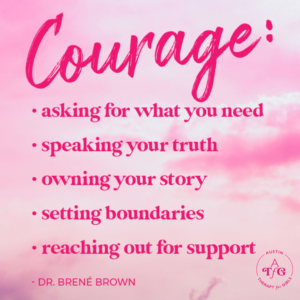
Therapists at ATFG, had many conversations over the summer about Courage, redefining courage and remodeling asking for help. This is important whether it’s your mental health or getting tutoring for an extra challenging class. We usually ask our clients what’s a strength and what’s a weakness when it comes to this definition.
-
Script for talking about feelings or concerns:
First make sure they are in a place to hear you, of course with difficult conversations there’s never a perfect time.
Start with what you have noticed, almost like you are viewing the situation from a video camera/phone.
For example, when I see you spending all night in your room, or when I see you spending more and more time alone, when I hear you say….
Notice what’s happening without judgment.
Second and most important step comes the validation:
I can only imagine how difficult it might be for you to …….. Examples: start back to school, be a Senior this year, start a new job, deal with a break up, or friendship struggles.
Then: depending on the age of your daughter, you might want to offer comfort or reassurance. For example, I’m here for you if you want to talk or if you don’t feel comfortable with me is there another adult you might reach out to ( might be a good time to suggest a therapist)?
Problem solving is also helpful, we suggest that be the last step. Sometimes problem solving makes girls and women feel less confident in solving their problems. For example, do you know anything that might help with this situation?
-
If you know someone is struggling with depression and needs support, create a safety plan with them and make sure they have access to support.
Here are some resources that can help:
- The National Suicide Prevention Lifeline: 988
- The Crisis Text Line: Text HOME to 741741
- The Trevor Project: 1-866-488-7386
- The Jed Foundation: https://www.jedfoundation.org/
- The American Foundation for Suicide Prevention: https://afsp.org/
Related article on current statics for girls
https://msmagazine.com/2023/02/28/teen-girls-mental-health-parenting/


